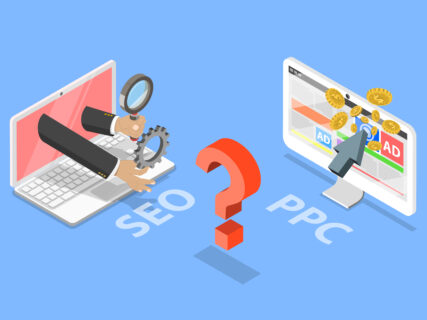
10 mins
OpenSEO vs PPC: The pros, cons, and how they can complement each other in a search campaign
3 mins
Just because there is no search demand for your product or service because it is new or unknown, doesn’t mean you don’t need SEO. Here’s how you optimise a website in this uncharted territory.
27th July 2016

Where a product or service has a known demand it is much easier to establish a keyword vocabulary for optimisation.
When there is little search demand for a product or service it may not be enough to get traffic to your site. But that doesn’t mean you don’t need SEO.
If you’re selling a product or service for which there is a known demand, optimising your site for search is pretty straightforward: key pages will need to be designed to focus clearly on that product or service, be it window cleaning or wedding bouquets.
But what happens when you’re offering something no one has heard of before? In 2016 it may sound outlandish to suggest anything remains to still be invented, but people are finding novel solutions to old problems all the time: a denim spray that means you don’t have to worry about your best jeans going frumpy in the wash, or a table base that has an auto levelling function: no more wobbly restaurant tables, ever.
Genius!
Where a product or service has a known demand it is much easier to establish a keyword vocabulary for optimisation.
Using tools like Google’s Keyword Planner (though recently less accessible) and Google’s Trends data, along with paid traffic analysis and some intuition will give you a good idea of how your audience is looking for your product or service.
With a few checks I can tell that more people are searching for “dog lead” than “dog leash” in the UK (but the situation is reversed in the United States).
And through Google’s Autosuggest and handy tools that draw collate this data, I can collect popular longer phrases too. I know people are looking specifically for “dog leads for running”, for instance.
But when no one is searching for a product because they don’t know it’s out there yet, you don’t have this kind of data as a starting point.
But when no one is searching for a product because they don’t know it’s out there yet, you don’t have this kind of data as a starting point.
You might want to argue that given this situation optimising a site at all is a pointless (expensive) exercise.
This would be the wrong call. For a start, all websites require some basic optmisation—in no small part because Google’s criteria for a worthy site is based on universally applicable standards of ease of use, validity and utility.
More importantly, however, you’d be missing out on a valuable opportunity to get ahead of any budding competition and create your online niche before anyone else does.
With a new product you’ll need to widen your focus to optimise for problems instead.
Because there is no market looking for your product (yet), you’ll need to identify those people facing the problem you’ve just solved.
Selling a denim refresh spray? Optimise pages for salient queries like “how to clean denim”.
Patented a table levelling base? People searching for “wobbly tables” is a good start.
But this is all so imprecise!
It is. But in many ways marketing generally can feel more intuitive than scientific.
Your strategy will have to rely on more forensic approaches, including mining Google’s Autosuggest as suggested above. For some topics turning to discussion forums is invaluable.
Google’s Keyword Planner is unlikely to get you very far for this—it’s not going to be forthcoming with data on longer queries.
Your strategy will have to rely on more forensic approaches, including mining Google’s Autosuggest as suggested above. For some topics turning to discussion forums is invaluable.
A small AdWords campaign around your “problem” keywords (in other words the keywords relating to the problem you’re trying to solve) can give you a sense of potential volumes.
There are a number of essential conditions which must be met for such an approach to have any hope of success.
In addition to a laterally thinking SEO specialist (critical), the client will have to have a sizeable appetite for exploration.
This approach requires continuous testing and evaluation, fine-tuning the keyword focus until an audience has been acquired and even then continuing to monitor to keep up as the market begins to take shape.
Whilst this is not the shortcut to SEO success some may hope for, this route has the added benefit of positioning the site as a resource by default—something we know Google favours across all online content.
As a sort-of venture capital equivalent of onsite optimisation, whilst the risks are high, the rewards may be too.